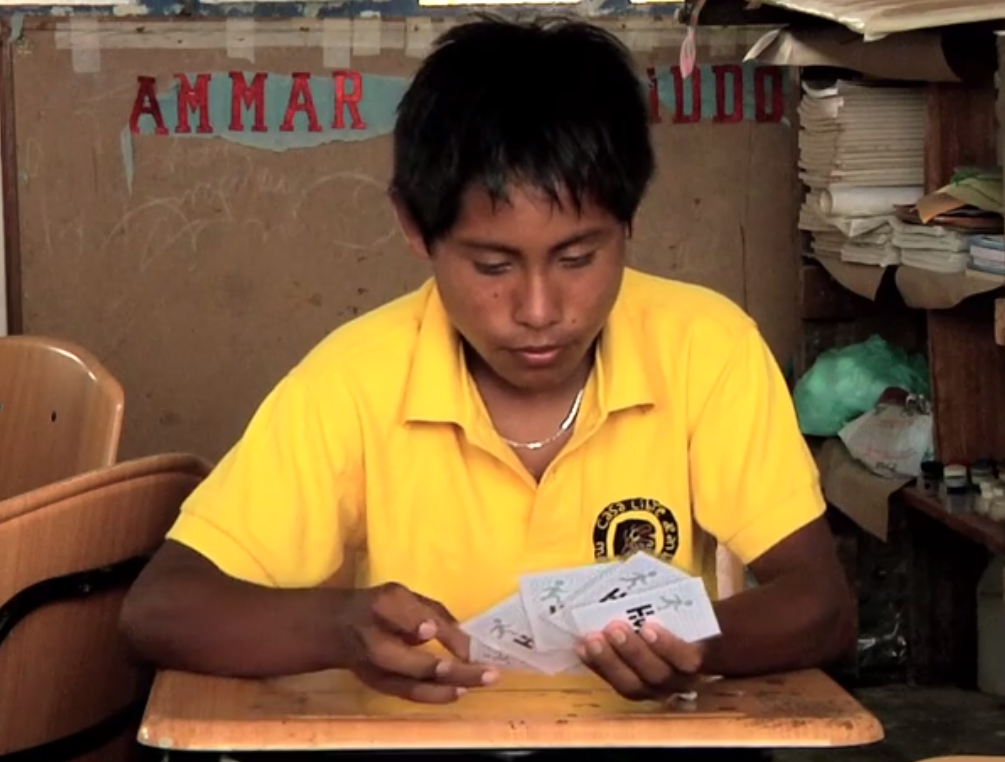[youtube width=”600″ height=”365″ video_id=”1UwFxNza8ac”]
During Summer 2014 in the semi-autonomous Panamanian community known as Kuna Yala, a team of University of Miami Public Health and Latin American Studies students participated in an educational intervention to raise awareness about mosquito avoidance and disease prevention among Kuna Yala’s 10-12 year old schoolchildren. They were successful in engaging the children in pertinent discussions about this topic through the use of a simple card game developed by Clay Ewing and myself called “Humans vs. Mosquitoes.” The student team adapted it to fit the cultural context of the remote village in Panama and introduced the game in a formal classroom setting, supplementing it with an educational talk and community-wide garbage cleanup.
The game has one goal for each team: the humans try to eliminate all the mosquitoes’ eggs from the breeding grounds while the mosquitoes try to deplete the humans’ blood supply. Children were quick to learn the game, and very eager to continue playing and switch teams after each round. Implementing a formal pre and post evaluation proved difficult, but the team left after seven days with very valuable knowledge about this topic. First, the game was popular among the children, which signifies its potential to be adapted to almost any environment. Second, by opening this channel of communication through gameplay, the team discovered that many of the children had difficulty defining dengue and distinguishing it from the mosquito itself or from other vector-borne diseases. Community health workers and health professionals must keep this in mind when developing awareness raising or educational campaigns. The Panama youth experienced situated learning by playing the game, and it facilitated trust and openness between all participants, which encouraged an ongoing discussion about an important health education topic identified by the community. The game can be used alongside other educational tools like talks and community engagement activities to reconcile the misconceptions about the life cycle of a mosquito and the diseases it may carry.
Thanks to Dr. Sherri Porcelain and Professor Ali Habashi for mentoring and creating such a unique student experience
Video credit: Hannah Artman, Charles Chen, Stephanie Echeverria, Orchadia McLean, and Amanda Randall – University of Miami
Blog content credit: Hannah Artman
